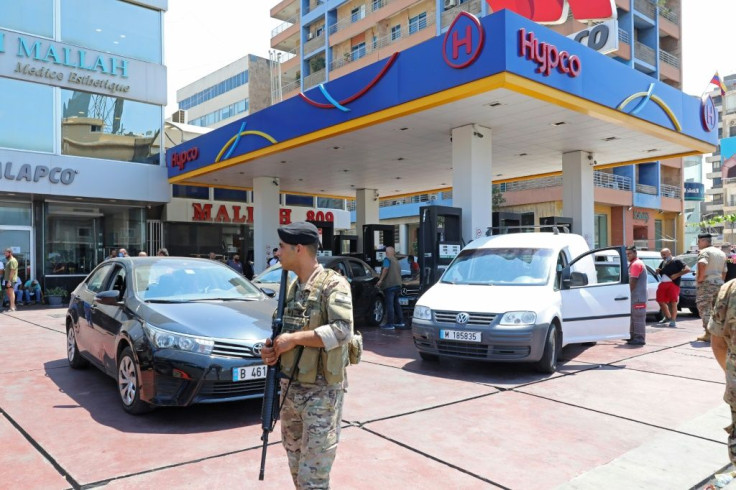Defying US Sanctions, Hezbollah Transports Iranian Oil Through Syria To Fuel-Starved Lebanon
KEY POINTS
- Prime Minister Najib Mikati said shipments constitute a breach of Lebanon's sovereignty
- Iranian tanker arrived at Baniyas in Syria last week and fuel brought via roads to Lebanon
- Experts say Washington may look the other way due to the situation in Lebanon
A convoy of 80 diesel tanker trucks from Iran has crossed the Syrian border into Lebanon, Lebanese media confirmed Tuesday. The fuel is being brought into crisis-hit Lebanon by militant group Hezbollah, violating the sanction imposed on Iran by the U.S. that prevents oil exports from Iran and imports to Syria.
Lebanon is battling a severe economic crisis which has led to an acute scarcity of fuel, besides other basic necessities like medicine, electricity and even drinking water. The crisis led to hours-long wait for gasoline at many gas stations, which resulted in protests and scuffles.
Hezbollah leader Sayyed Hassan Nasrallah announced last month that Iran was sending fuel to Lebanon. The first Hezbollah-commissioned Iranian oil tanker arrived in Baniyas last week before it was brought via roads to Lebanon.
Newly elected Prime Minister of Lebanon, Najib Mikati, maintained that the shipments of Iranian oil constitute a breach of Lebanon's sovereignty and was not approved by his government, reported Reuters, quoting pro-Iranian Lebanese TV channel Al Mayadeen.
As many as 80 trucks with 1.1m gallons of diesel have reached Lebanon from the Syrian port of Baniyas, where an Iranian oil tanker has anchored. Hezbollah had decided not to bring the oil directly to Lebanon, so as to avoid embroiling Lebanon in U.S. sanctions on Iran. The move is seen as a victory for Hezbollah, with the militant organizations-backed Al-Manar TV calling it "the tanker truck convoys to break the American siege."
Hezbollah said hospitals and other key services will get priority access. While the fuel would be distributed free to government hospitals, nursing homes, orphanages, and the Lebanese Red Cross, it will be sold at cheaper rates to bakeries, private hospitals, and companies operating generators, reported BBC.
Though the U.S. has not formally commented on the new move, local commentators said Washington may have decided to look the other way, clearly concerned about the situation in Lebanon.
Sen. Chris Murphy, D-Conn., a member of the Senate foreign relations committee, had signaled a separate move to import gas to Beirut from Egypt through Jordan and Syria could be exempt from sanctions. "My hope is that we could find a way to get this done that would not involve any U.S. sanctions,” Murphy was quoted by The Guardian during his visit to Beirut earlier the month.
A report also quoted a U.S. state department official who said the U.S. government supports efforts to find creative, transparent, and sustainable energy solutions that will address Lebanon’s acute energy and fuel shortages. "That’s what the Lebanese people need – not another publicity stunt by Hezbollah," he said.

© Copyright IBTimes 2024. All rights reserved.





















